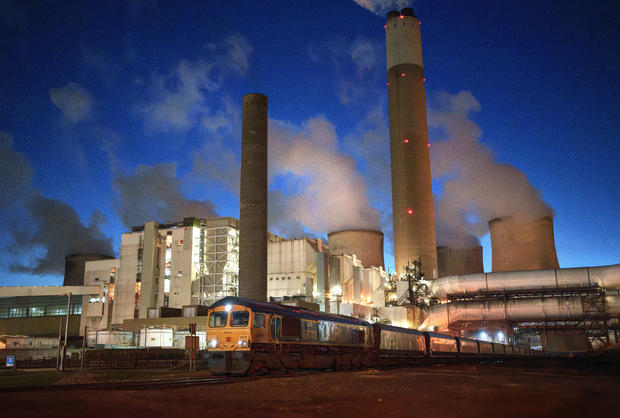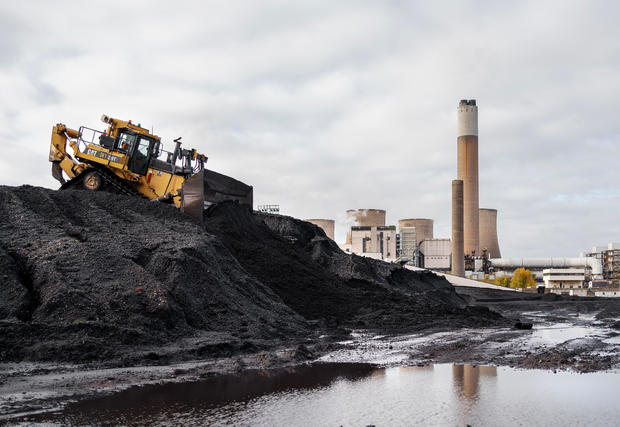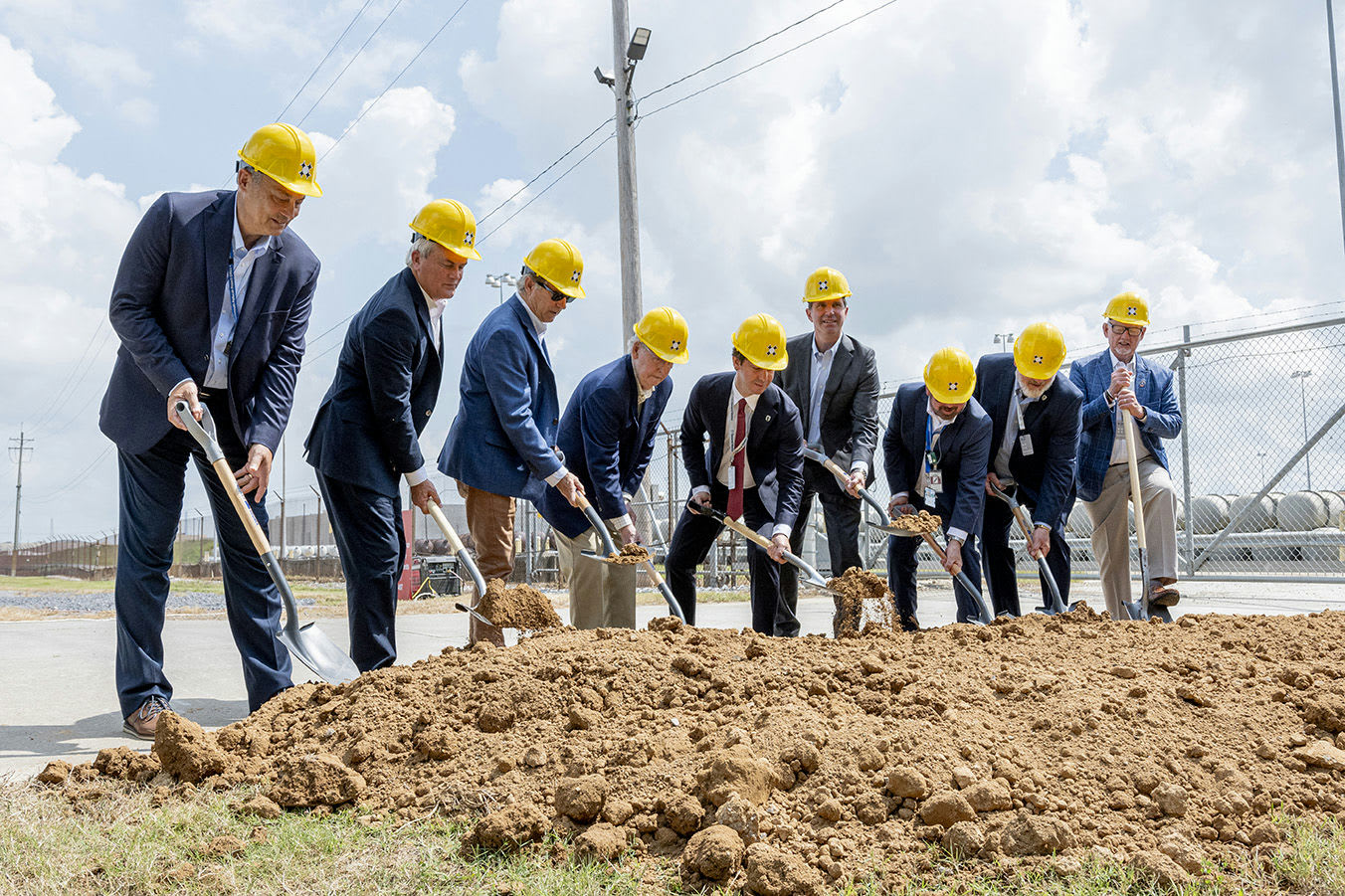United Kingdom closes its last coal-fired power plant
The U.K.'s last coal-fired power plant was to close permanently on Monday — bringing an end to 140 years of reliance on the fossil fuel to generate electricity in Britain. The move will make the U.K. the first major global economy to completely phase out coal as an energy source.
The Ratcliffe-on-Soar Power Station, located near a small village in southern England, was to close its doors for the last time at midnight local time. The power station has been generating electricity since 1967 and "played a key role in keeping the nation's lights on," its parent company Uniper said in a statement Monday.
"Since commissioning it has produced enough energy to make more than 21 trillion cups of tea and its 2GW capacity is enough to power two million homes," the company said.
Peter O'Grady, the plant's manager, told CBS News it was "an emotional day."
"When I started my career 36 years ago, none of us imagined a future without coal generation in our lifetimes. I am incredibly proud of what we've achieved together over the years and to be part of this energy milestone as the country focuses on a cleaner energy future," he said.
The move sees the U.K. make good on one of the environmental pledges made by the government as part of a wider strategy to combat climate change and achieve net-zero greenhouse gas emissions by 2050. Coal is considered the single most damaging fossil fuel for the environment, according to Greenpeace, as it releases more carbon dioxide than oil or gas. Coal also produces mercury and arsenic, and small particles of soot which contribute to air pollution.
Thirteen countries have already phased out coal as a source of energy, according to independent climate think tank Ember, but Britain will be the only member of the G7 group of economically advanced, democratic nations to do so thus far.
In the G7's largest economy by a significant margin, the U.S., the Department of Energy acknowledges that coal is still "used to generate a significant chunk of our nation's electricity" — about 16% of the total share in 2023, according to the Energy Information Administration.
U.K. Energy Minister Michael Shanks said in a statement sent Monday to CBS News that the closure of the Ratcliffe power station "marks the end of an era, and coal workers can be rightly proud of their work powering our country for over 140 years."
"The era of coal might be ending, but a new age of good energy jobs for our country is just beginning," Shanks said.
The first coal plant in Britain went online in 1882, when Thomas Edison's Holborn Viaduct coal plant started generating electricity for public use. It was a first-of-its-kind station, and it burned enough coal to provide energy to light 1,000 lamps in the City of London.
Despite efforts to make the industry cleaner, the fundamentals of coal-fired electricity generation have remained largely unchanged since Edison's company fired up its boilers. The process involves burning the fossil fuel to heat water to create steam, which spins a turbine to produce electricity.






